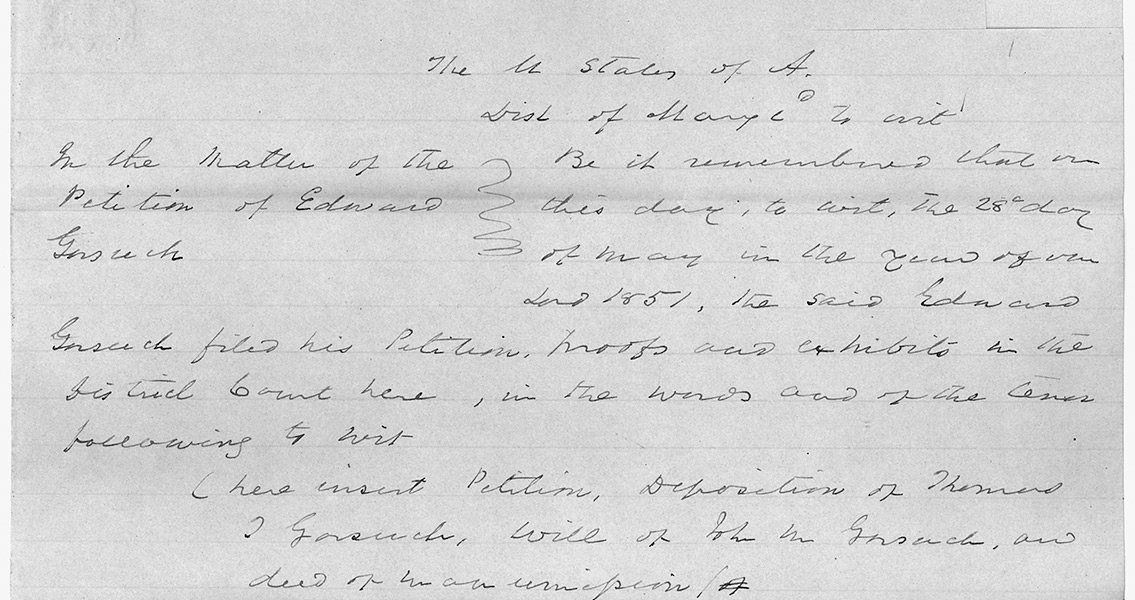<![CDATA[Maryland plantation owner Edward Gorsuch was killed in Christiana, Pennsylvania on 11th September, 1851. Gorsuch had crossed the Mason-Dixon line which separated the Northern and Southern states in an attempt to reclaim four escaped slaves. A group of white abolitionists and African-Americans fought Gorsuch and his group in an event which became known as the Christiana Riot. The confrontation came at a chaotic moment in United States' history, as the differences between the largely abolitionist North and the slave owning South became increasingly acute. At the centre of this brewing dispute were two 'Fugitive Slave Laws' which made a legal obligation for all states to forcibly return escaped slaves to their owners - even if slavery was illegal in the state the slave had fled to. The First Fugitive Slave Law, passed in 1793, set out this new principle in response to a growing number of slaves escaping from bondage and fleeing north to the free states in the hope of gaining protection and asylum there. As more and more Northern states abolished slavery, the enforcement of the law became increasingly relaxed, infuriating slave owners in the Southern states. In 1850 a Second Fugitive Slave Law was passed, one which installed heavy penalties for anyone failing to uphold it. Throughout the early nineteenth century the Underground Railroad - a covert, informal network of freed slaves, Quakers and abolitionists - had worked to help Southern slaves escape bondage into Canada. It added to a growing sense in the South that the abolitionist North was working to undermine the institution of slavery, and helped create a situation where slave owners took the law into their own hands, forming small militias and crossing state borders to recapture their escaped slaves. It was one such exhibition which led to Gorsuch's expedition north of the Mason-Dixon line. John Beard, Thomas Wilson, Alexander Scott, and Edward Thompson had escaped from Gorsuch's plantation in Maryland and crossed the border to take up residence in Lancaster County, Pennsylvania. Gorsuch obtained a warrant under the Fugitive Slave Law, and set off to retrieve his slaves. Gorsuch learnt that the four escaped slaves were staying on the farm owned by a former slave named William Parker, and arrived there with a contingent of slave catchers and US Marshals. Parker's wife blew a horn to warn the local community that the slave catchers had arrived, and a group of armed former slaves and abolitionists arrived at the farm to confront Gorsuch and his men. In the ensuing confrontation, Gorsuch was killed and his son injured. The slave catchers quickly retreated from the area, before returning with a detachment of US Marines as reinforcement. By this point the Parkers, and the slaves, had fled north to Canada (taking advantage of the Underground Railroad.) The US Marines arrested some 37 people accused of preventing Gorsuch and his men reclaiming their slaves. Ultimately however, they were unable to find enough evidence to prosecute those they believed to have been the ring leaders, and all the accused were acquitted. The Christiana Riot, coming just a year after the passing of the Second Fugitive Slave Law, seemed a major victory for the abolitionists in the fight against slavery. Over the next few years similar incidents would occur close to the Mason-Dixon line, exacerbating the growing tension between North and South in the build up to the American Civil War. ]]>
The Christiana Riot
